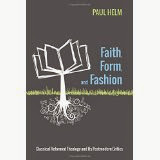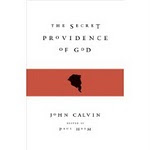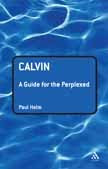'A Tale of Two Wills?' is the title of Richard Muller’s short but illuminating discussion of John Calvin’s idea of the unity of the divine will in salvation in the November 2009 Calvin Theological Journal. Muller contrasts Calvin’s and Moise Amyraut’s position on Ezekiel 18.23, using it as a test case for approaching their respective positions. And he evaluates Amyraut’s claim that his interpretation is also that of Calvin and therefore that his is the authentic Calvinism. For as Muller shows, Calvin’s account is a one-will account of the divine salvific intention, whereas Amyraut’s is a two-will account. I will sketch the background to this a little further, and then make some comments on Calvin’s one-will outlook.
The text
The text reads
For I have no pleasure in the death of anyone, declares the Lord GOD; so turn, and live.
Amyraut approaches the text in terms of positing two wills in God, a first will according to which God wills salvation universally on the basis of covenant obedience, the bestowing of salvation being implicitly conditional; and, that failing, a second will according to which salvation is particular, in terms of the decree of God to grant efficacious grace to the elect. And for this two-will view he believes that he has an ally in John Calvin himself, given his understanding of Calvin’s own remarks on this verse. Calvin’s treatment of the text in his Lectures on Ezekiel is noteworthy, according to Muller, because it is one of the few places in which Calvin discusses the universality of the offer of the gospel explicitly in the light of the eternal decree.
While on Amyraut’s view the prophet speaks of mercy that universal in its scope but implicitly or tacitly conditional, Muller argues that this is not Calvin’s view. Rather, Muller claims
The prophet’s words of universal promise do not refer to the eternal counsel of God, nor do they set the universal promise of the gospel against the eternal counsel as a different will. Rather, God always wills the same thing, presumably, the salvation of the elect, albeit in different ways, namely in his eternal counsel and through the preaching of the gospel. (218)
Muller quotes Calvin’s words
If any one again objects that in this way God acts in two says, the answer is ready, that God always wishes the same thing, though by different ways, and in a manner inscrutable to us. (218)
So Calvin thinks that there is one divine decree with various ways of bringing it to pass. Some of these ways involve the actions of those who flouted the revealed will of God, his commands, while others involve the upholding of the revealed will. So there are not two separate wills, only one. The distinction is between the secret and the revealed will, not between an antecedent and a consequent will. (222)
A suggestion
Following on from this, while how the ‘two wills’ of God are elements o of one divine will is ‘inscrutable’ to us, I suggest that nevertheless there is a fittingness, even perhaps a necessity to the indiscriminate offer of grace in a situation in which salvation is freely given and the enjoyment of that grace is through justification by faith alone and its inseparable accompaniment, sanctification. Perhaps we may put the point as strongly as this: The execution of the one divine will of salvation through free grace must have different phases if the freeness of grace is to be received as such, and preserved from serious misunderstanding or even compromise. As we have seen, on Calvin’s view there are not two wills in God, but different elements of the one will. The one will not only has differential outcomes, in the case of the elect and the reprobate, but it is also brought to pass through various phases. These are not (in this case) the much-discussed covenantal or redemptive-historical phases, but phases in which those elected and reprobated are in different epistemic situations, phases in which certain outcomes must be hidden from those about to enjoy them, if they are to receive them with understanding.
The Lord’s one will is decretal, distinguishing between election and reprobation, but there is a phase in the execution of that decree, let’s call it the ‘proclamation phase’, in which the presentation is worded universally. From that universal presentation no inferences can be drawn as to who among those to whom the presentation is made are reprobate, and those who are elect. Discriminate grace, but indiscriminate preaching.
Why is there this phase? Why is it that ‘announcement’ is a part of the scheme? Why does God choose to bring his grace to sinners by means of an announcement that anyone who turns from his sin will be received? Partly, of course, because it is true! Whoever wills may come. God does desire the return of the penitent sinner. But suppose for a moment that there was no such phase, but instead an economy which was conducted uniformly, either in terms explicitly directed to the elect, or in terms directed explicitly to the reprobate. If this happened (as it tends in fact to happen in some hyperCalvinist settings) the hearers would not be invited to come to Christ, but (by the terms of the preaching) they would be forced to ask ‘Which am I? Am I among the elect, or among the reprobate? Do I fulfil the requirements or conditions of being among the former or among the latter?’ In these circumstances there could be no full, direct invitation. The gospel could not be proclaimed ‘by invitation only’. In other words, under such terms ‘gospel preaching’ would have the effect not of turning men and women to face a Christ who invites them to come to him, but of turning them in upon themselves. And such a turning in is but a very short step from a person being concerned about whether or not he is qualified to come to Christ. or concerned about the hardness of his heart, in which case there would be despair over what would be taken to be the marks of retribution. Either way, instead of facing Christ a person would introspect. At such a point grace would become legalised, So I suggest that what Calvin is identifying is not an arbitrary procedure on God’s part, but a necessary feature of the preaching of God’s free grace in Christ. This is a pastoral necessity, and perhaps even a logical necessity. So while God’s procedure is ‘ineffable’ in the sense that it is difficult to see how the one will of God possesses different phases, there is a rationale for it.
It would also have implications for prayer and more generally, for the desire for the salvation of men and women. For example, if, after setting forth in Romans Ch. 9 his theology of the remnant according to grace, Paul had known by some means who among his Jewish contemporaries were elect, and who reprobate, how could he have had a desire that they might (without exception) be saved (Rom.10.1), or had the thought that he might be accursed form Christ for the sake of his brothers, his kinsmen according to the flesh? (Rom. 9.1-5).
Returning to Calvin, perhaps we could add this: that such universal or indiscriminate preaching is a working out of Calvin’s teaching that Christ is the mirror of election.
But if we are elected in him, we cannot find the certainty of our election in ourselves; and not even in God the Father, if we look at him apart from the Son. Christ, then is the mirror in which we ought, and in which, without deception, we may contemplate our election. For since it is into his body that the Father has decreed to ingraft those whom from eternity he wished to be his, that he may regard as sons all whom he acknowledges to be his members, if we are in communion with Christ, we have proof sufficiently clear and strong that we are written in the Book of Life.
Calvin goes on
The practical influence of this doctrine ought also to be exhibited in our prayers. For though a belief of our election animates us to involve God, yet when we frame our prayers, it were preposterous to obtrude it upon God, or to stipulate in this way, ‘O Lord, if I am elected, hear me’. He would have us rest satisfied with the promises, and to not inquire elsewhere whether or not he is disposed to hear us. We shall thus be disentangled from many snares, if we know how to make a right use of what is rightly written, but let us not inconsiderately wrest it to purposes different from that to which it ought to be confined. (Inst. III. 24. 5)








